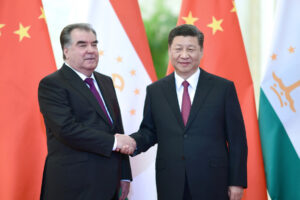Member of Commission IX DPR RI Arzeti Bilbina appreciated the increase in the Provincial Minimum Wage (UMP) in 2024 through a new calculation formula. Arzeti assessed that this increase could have a positive impact on entrepreneurs and workers in increasing the productivity of goods and services.
“I think the new formula set by the Ministry of Manpower (Kemenaker) is a win-win solution between workers and employers, especially employers. Because there is balance for all parties, including the Government as the regulator,” said Arzeti in a written statement, Monday (13/ 11/2023).
The government, through the Minister of Manpower (Menaker) Ida Fauziah, issued a new regulation regarding wages, namely Government Regulation No. 51 of 2023. This regulation is a revision of PP No. 36 of 2021 concerning Wages, and will come into effect on 10 November 2023.
Through this new regulation, the increase in the minimum wage for workers is obtained from the application of the Minimum Wage Formula which includes 3 variables, namely inflation, economic growth and a certain index (symbolized in the form a).
This determination is made by the Regional Wage Council by considering the level of labor absorption and the average or median wage. Apart from that, other factors that are relevant to employment conditions are taken into consideration.
This formula is also a form of appreciation for workers and laborers who have contributed to Indonesia’s economic development. Arzeti said that the new regulations were one solution to job security and business continuity.
“As stated by the Minister of Manpower, increasing the minimum wage using this new formula can encourage an increase in people’s purchasing power. Of course this will have a positive impact on the national economy and be one way to balance the distribution of economic profits,” he said.
With the three variables for calculating wages in the new regulations, Arzeti assesses that economic and employment conditions in a region will be accommodated in a balanced manner. He also said that this regulation creates a fair wage system in companies, one of which is by implementing a wage structure and scale.
“Moreover, this new regulation prevents gaps or disparities in minimum wages between regions. So that there is fairness in the wage system for all workers in Indonesia because the income of workers in cities that have low UMP also deserves more attention,” explained Arzeti.
The DPR Commission in charge of employment affairs also assessed that PP No. 51/2023 complements previously existing regulations. Arzeti said that implementing a wage structure and scale in the new UMP calculation format would motivate workers’ productivity and performance.
“This wage regulation is better than anything that has existed so far. This regulation is the result of the Ministry of Manpower’s hard work in paying attention to the fate of workers. Both in big cities, even in areas with low wages, they are a contributor to our country’s economic development,” he said.
“This regulation also provides legal certainty for the world of business and industry. However, supervision must be ensured so that it does not harm workers, especially those who work in small and medium scale companies,” continued Arzeti.
He said this would create a positive scope for workers and allow the creation of new jobs. He said that through this formula, entrepreneurs are able to absorb support from the goods and services produced, so that companies can increase production.
“We hope that the new UMP regulations can reduce the problem of unemployment which is still quite high in Indonesia,” emphasized this member of the DPR’s Inter-Parliamentary Cooperation Agency (BKSAP).
“We at the DPR support the efforts made by the Government, in this case the Ministry of Manpower, which continues to make breakthroughs to eradicate poverty through decent wages and opening up new business and employment opportunities,” continued Arzeti.
On the other hand, Arzeti encouraged local governments to ensure the implementation of a fair wage structure and scale in accordance with the mandate of PP No. 51/2023. Regional governments are reminded to involve all stakeholders in preparing the UMP, including worker representatives, companies, and to be more involved in the role of the Regional Wage Council.
“Local government regulations must support the creation of a healthy and mutually beneficial working relationship between workers and employers,” he explained.
The provincial minimum wage is determined by Governor’s Decree and announced no later than November 21. Meanwhile, district/city minimum wages are determined by Governor’s Decree and announced no later than November 30. The increase in the UMP must take effect on January 1 2024.
Arzeti invited policy makers, including the Governor, Head of Department in charge of employment, and the Regional Wage Council to carry out the mandate of PP No.51/2023 carefully.
“Determination of the Provincial Minimum Wage and Regency/City Minimum Wage must be carried out in accordance with the stipulated deadlines, taking into account the needs and dynamics of each region,” concluded Arzeti.
Source: Detik news















